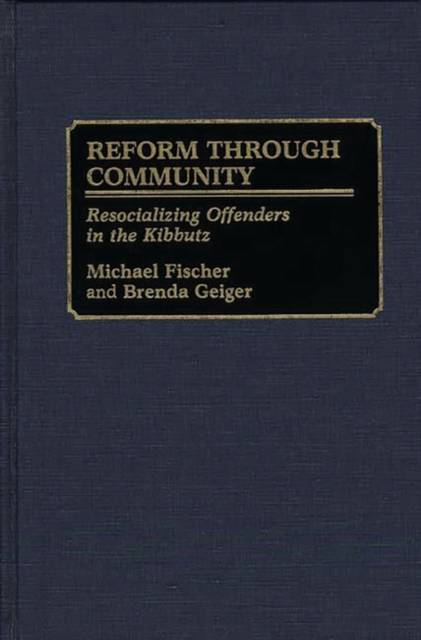
Je cadeautjes zeker op tijd in huis hebben voor de feestdagen? Kom langs in onze winkels en vind het perfecte geschenk!
- Afhalen na 1 uur in een winkel met voorraad
- Gratis thuislevering in België vanaf € 30
- Ruim aanbod met 7 miljoen producten
Je cadeautjes zeker op tijd in huis hebben voor de feestdagen? Kom langs in onze winkels en vind het perfecte geschenk!
- Afhalen na 1 uur in een winkel met voorraad
- Gratis thuislevering in België vanaf € 30
- Ruim aanbod met 7 miljoen producten
Zoeken
€ 161,45
+ 322 punten
Omschrijving
This book recounts a successful effort to resocialize criminal offenders placed in Kibbutzim. Social scientist Michael Fischer and educational philosopher Brenda Geiger describe the events and experiences that unfolded when a Kibbutz adopted an Israeli ex-convict as a temporary member of its collective. They conclude that resocialization is achievable: that a world of hard work, interdependence, and self-denial can successfully compete against the temptations for adventure and diversion in an offender's past and present.
Fischer and Geiger reconstruct the subjective experiences of the Israeli ex-convicts who were invited to live and work as members on separate Kibbutzim. They detail how a protective environment, daily routines, egalitarianism, peer group support, acceptance, and trust yielded involvement, commitment, and higher self-esteem on the part of the offenders. Relating the kibbutz experience to theories of social psychology and criminology, Fischer and Geiger offer a model for resocialization combining group dynamics with social learning in a context of meaningful work and acceptance. This study is valuable to students and scholars of social psychology, criminology, and Judaic Studies.Specificaties
Betrokkenen
- Auteur(s):
- Uitgeverij:
Inhoud
- Aantal bladzijden:
- 248
- Taal:
- Engels
- Reeks:
Eigenschappen
- Productcode (EAN):
- 9780313279317
- Verschijningsdatum:
- 30/07/1991
- Uitvoering:
- Hardcover
- Formaat:
- Genaaid
- Afmetingen:
- 163 mm x 243 mm
- Gewicht:
- 539 g

Alleen bij Standaard Boekhandel
+ 322 punten op je klantenkaart van Standaard Boekhandel
Beoordelingen
We publiceren alleen reviews die voldoen aan de voorwaarden voor reviews. Bekijk onze voorwaarden voor reviews.









